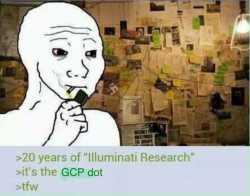>>16646371>>16646378Say you wanted to try and look into hypotheses like whether our world is truly random,
h determines our world in ways many aren't totally aware of
You could gather a collection of totally random numbers from random places, to make sequences designed to be random. They're truly regular amounts of random in a manner that's measurable, and fairly stable.
This also lets you measure when they stop being so random despite this being extremely improbable. Too unlikely to be natural, especially if it keeps going and going like that for extended periods.
Sometimes this can be unnaturally too random, which is red. Your shuffle feature for music for example, is not truly random. They had to make it less truly random, so it appeared more random as humans perceive random as occasionally repetitive, or containing patterns it doesn't really have. Red is a bit like that, it's too chaotic to be regular randomness. Sometimes, it's unnaturally lacking variance. It's too unified, and organized. This is blue. This shit right now is and has been so blue it's dipping below the fucking chart. Above 97 percent.
What that means, idk, it depends on how much you're willing to interpret the dot.
Historically, strange dot results for extended periods especially, tend to happen around happenings. Some aren't very crazy happenings: Blue or low variance dots have a higher chance of not being inherently bad, but they can still be bad. Natural disasters or accidents like plane crashes have been linked to low variance time periods. But so have extremely large groups of people meditating together on purpose.
Generally, it means too many people are sharing some conscious space: a thought, feeling, idea. Could be on purpose, could be because they're experiencing something.
While it happens though, all you can really do, is interpret the dot.

